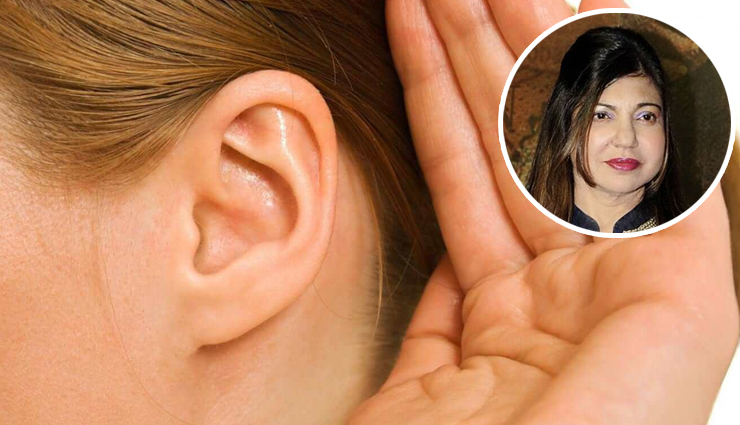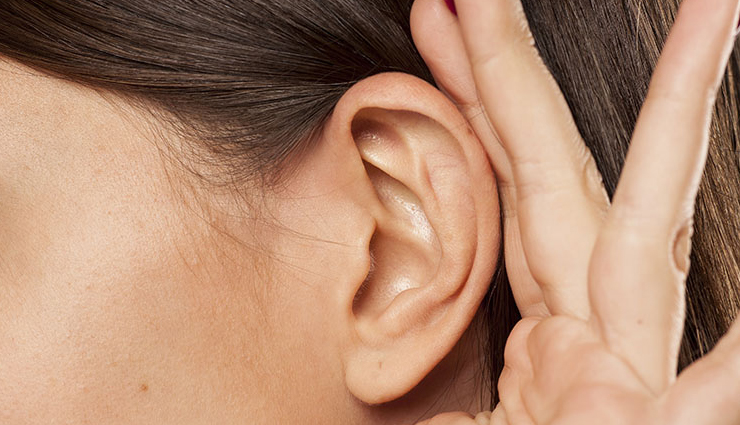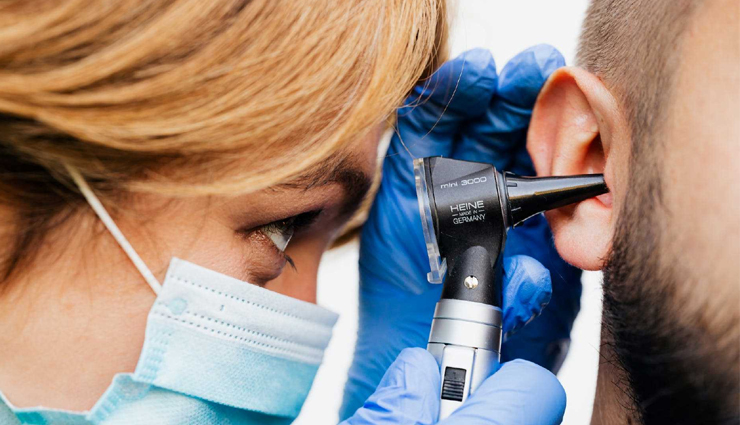- Home›
- Healthy Living›
- Singer Alka Yagnik Is Suffering From Sensory Hearing Loss- Know Its Causes, Symptoms, Risk Factor And Treatment
Singer Alka Yagnik Is Suffering From Sensory Hearing Loss- Know Its Causes, Symptoms, Risk Factor And Treatment
By: Priyanka Maheshwari Sat, 17 Aug 2024 2:30:18

Leading Bollywood singer Alka Yagnik has recently shared on Instagram that she is dealing with a rare form of sensorineural nerve hearing loss. This condition developed after a sudden viral infection, as she revealed in a heartfelt post. Yagnik, who has been out of the public eye, opened up about this unexpected health challenge and asked for her fans' support and understanding.
"In a recent Instagram post, Yagnik explained, 'A few weeks ago, after disembarking from a flight, I suddenly realized I could not hear anything. After gathering some courage in the following weeks, I felt it was time to share why I've been absent. My doctors have diagnosed me with a rare sensorineural nerve hearing loss caused by a viral attack... This unexpected setback has been overwhelming.' She also requested her fans to keep her in their prayers and advised against exposure to loud music and headphones.
Yagnik also cautioned her fans and younger colleagues about the dangers of excessive loud music and headphone use. Despite her current health struggles, she remains hopeful about returning to her career soon with the support of her followers.

What Is Sensorineural Hearing Loss (SNHL)?
Sensorineural hearing loss (SNHL) is a prevalent type of hearing impairment resulting from damage to the inner ear or auditory nerve pathways. It can affect people of all ages and significantly impact their quality of life. Understanding the causes, symptoms, risk factors, and treatment options for SNHL is essential for early diagnosis and effective management. Here's a comprehensive overview to help individuals and caregivers navigate this condition.
Sensorineural Hearing Loss Causes
Sensorineural hearing loss (SNHL) can be attributed to a range of causes, from genetic factors to environmental influences. Understanding these causes is crucial for effective prevention and treatment.
# Age-Related Hearing Loss (Presbycusis): One of the most common causes of SNHL, presbycusis occurs with aging, typically affecting those over 65. It is characterized by a gradual loss of hair cells in the cochlea.
# Noise-Induced Hearing Loss: Extended exposure to loud sounds, such as from machinery, concerts, or headphones, can damage the hair cells in the inner ear, leading to SNHL.
# Genetic Factors: Genetic mutations present at birth can affect the development and function of the auditory system, resulting in congenital SNHL.
# Infections: Viral and bacterial infections, such as meningitis, measles, and mumps, can cause inflammation and damage to the inner ear structures.
# Ototoxic Medications: Certain medications, including some antibiotics, chemotherapy drugs, and nonsteroidal anti-inflammatory drugs (NSAIDs), can be toxic to the inner ear and result in SNHL.
# Head Trauma: Injuries to the head can damage the inner ear or auditory nerve, leading to hearing loss.
# Meniere's Disease: This inner ear disorder, marked by abnormal fluid buildup, can cause SNHL along with vertigo and tinnitus.
# Acoustic Neuroma: A benign tumor on the auditory nerve can interfere with the transmission of sound signals to the brain, leading to SNHL.

Sensorineural Hearing Loss Symptoms
The symptoms of sensorineural hearing loss (SNHL) can vary based on the severity and underlying cause of the condition. Common symptoms include:
# Difficulty Hearing Soft Sounds: Individuals with SNHL may have trouble hearing faint or soft sounds, making it hard to follow conversations, especially in noisy settings.
# Muffled or Distorted Hearing: Sounds may come across as muffled or distorted, impacting the clarity of speech and music.
# Tinnitus: Persistent ringing, buzzing, or hissing sounds in the ears (tinnitus) are often associated with SNHL.
# Difficulty Understanding Speech: Understanding speech, particularly in group settings or environments with background noise, can be challenging for those with SNHL.
# Sensitivity to Loud Sounds: Loud noises may feel unusually intense or even painful (hyperacusis) for individuals with SNHL.
Sensorineural Hearing Loss Risk Factors
Several risk factors can elevate the likelihood of developing sensorineural hearing loss (SNHL). Recognizing these factors can aid in taking preventive measures:
# Age: Aging significantly increases the risk of SNHL, with a higher prevalence among older adults.
# Genetic Predisposition: A family history of hearing loss can raise the risk of developing SNHL.
# Occupational Exposure: Jobs that involve frequent exposure to loud noises, such as in construction, manufacturing, and the music industry, can heighten the risk.
# Recreational Noise Exposure: Regular exposure to loud music, concerts, and recreational activities like shooting and motorcycling can contribute to SNHL.
# Medical Conditions: Conditions such as diabetes, hypertension, and autoimmune diseases can increase the risk of SNHL.
# Use of Ototoxic Medications: Extended use of medications known to be harmful to the inner ear can raise the risk of developing SNHL.

Sensorineural Hearing Loss Treatment
While sensorineural hearing loss (SNHL) is often permanent, various treatment options can help manage the condition and enhance quality of life.
# Hearing Aids: These are the most common treatment for SNHL. Hearing aids amplify sound, making it easier to hear and understand speech.
# Cochlear Implants: For those with severe or profound SNHL, cochlear implants can be effective. They bypass damaged hair cells and directly stimulate the auditory nerve.
# Assistive Listening Devices: Tools such as amplified telephones, TV listening systems, and personal FM systems can improve hearing in specific situations.
# Medications: If SNHL is due to inflammation or autoimmune conditions, corticosteroids or other anti-inflammatory medications may be prescribed.
# Surgery: Surgical options may be necessary for conditions like acoustic neuroma or other structural issues affecting the auditory system.
# Aural Rehabilitation: This therapy focuses on enhancing listening skills, lip-reading, and communication strategies to help individuals manage SNHL.
# Lifestyle Modifications: Preventing further hearing loss can be achieved by avoiding loud noises, using ear protection, and managing underlying health conditions.
# Regular Hearing Check-ups: Routine audiometric tests and consultations with an audiologist can help monitor hearing health and make necessary adjustments to treatment plans.





